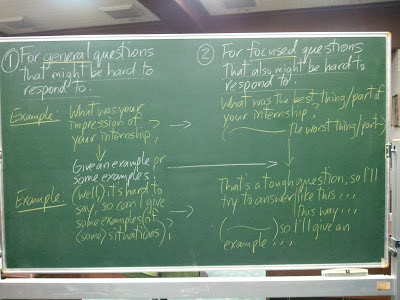How are you? I decided to make one more quick post for all of you today before we go on our holiday. Look at the picture above. It has the schedule of what we have left for this semester, both today and after the holiday.
REMEMBER: Shibaura starts again on January 7th, so you will have to make your posters with your group members outside of class and have them ready for the final poster presentations on January 15th!
Now look at this next picture. It shows how you should lay out your poster:
You should have the title in large dark letters on the top, with the names of your group members below it, in smaller letters.
Click to see the Part 1 post I showed you this morning here.
ANOTHER NOTE: As I said before, I will repost the Part 1 post on January 7th, plus upload a new post then. I will also repost this post on January 7th. I will give you as much support as you need outside of class!
Check this blogpost as many times as you want or need!
I will make no new blogposts between today and January 7th, so have a happy holiday and a great New Year!














































